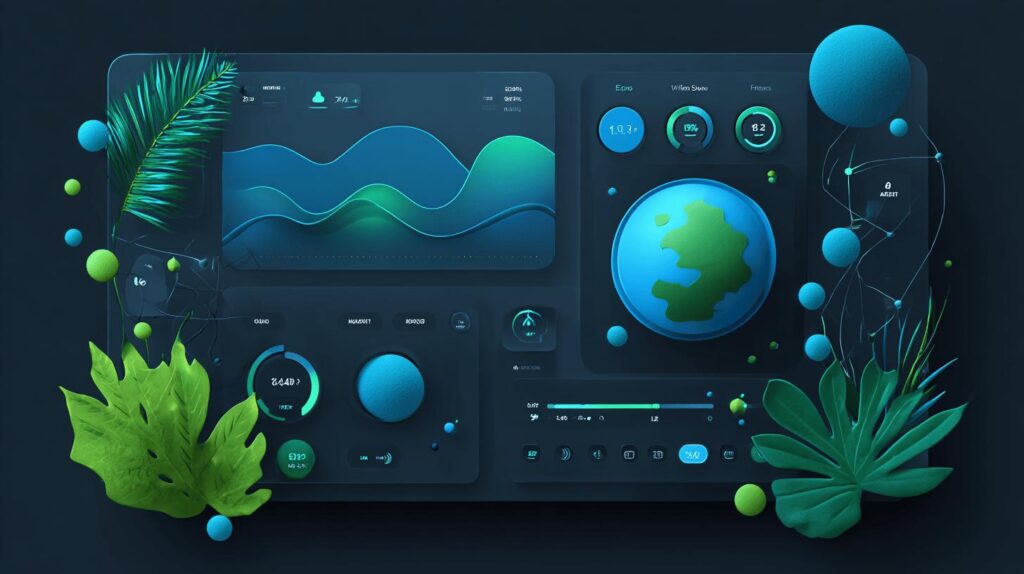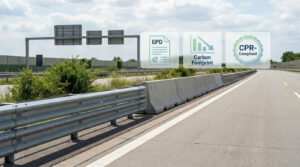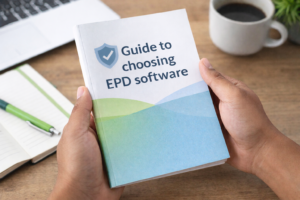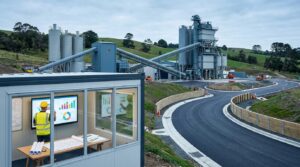
Manual, spreadsheet-based carbon tracking can slow decisions and introduce errors. Sphera offers enterprise-grade LCA/ESG tooling; still, some organisations evaluate additional options when they prioritise packaged workflows, streamlined UX, and turnkey data flows. This guide compares five commonly considered alternatives, focusing on workflow-oriented features, automated data exchange with ERP/PLM/SCM (scheduled or event-driven, depending on setup), and guided workflows/exports to support reporting aligned to CSRD and ISO 14040/44 (not legal advice) – so teams can measure and manage footprints more efficiently and spend more time on reduction initiatives.
What is Sphera? A Brief Overview
Sphera is an enterprise software suite used for ESG reporting, Environment, Health & Safety (EHS), product stewardship, and life-cycle assessment (LCA). It’s commonly adopted by large organisations to manage sustainability data, support regulatory reporting, and inform environmental risk and performance decisions across complex supply chains.
While many teams use Sphera successfully, some organisations also evaluate additional platforms when they prioritise packaged workflows, streamlined user experience, or turnkey data connections with ERP/PLM/SCM and supplier systems. As with any enterprise tool, it’s best to confirm modules, integration options, and support SLAs against your specific requirements.
Why Businesses are Searching for Sphera Alternatives

Sphera is recognised for comprehensive solutions spanning ESG, EHS, risk management, product stewardship, and LCA. In practice, teams’ experiences vary by configuration and use case. Some organisations prioritise streamlined, role-based workflows and a simpler day-to-day UX, and therefore also evaluate platforms that emphasise guided processes and clearer dashboards.
Automation needs also differ. While enterprise tools offer integration options, some teams look for more turnkey ingestion and aggregation (e.g., connectors/APIs and templated data flows) to reduce manual steps and shorten report preparation. If this is a priority, confirm what is available out of the box versus what requires configuration or services – especially for Scope 3 data and multi-system imports.
Reliability and operations matter, too. Where continuous access is critical, organisations typically review uptime targets, status pages, and support SLAs with each vendor as part of procurement.
As reporting expectations (e.g., CSRD, ISO 14040/44) expand, many teams compare multiple platforms and select the one that best aligns with their workflow, integration, and assurance requirements.
Key Features Businesses Look for in Sphera Alternatives
When sustainability and supply-chain teams compare alternatives to Sphera, they tend to prioritise capabilities that simplify day-to-day LCA work and reduce manual effort.
Clear, collaborative UX
Look for intuitive, role-based interfaces and dashboards that make results easy to find and share across functions. Straightforward navigation shortens onboarding and supports cross-team collaboration without extensive training.
Automation for data capture and calculations
Prioritise tools that reduce spreadsheet work through automated data exchange with ERP/PLM/SCM and supplier systems – scheduled or event-driven, depending on setup – and that assist with Scope 1–3 aggregation. Less manual handling helps lower error risk and shorten reporting cycles.
Integration depth and supplier collaboration
Evaluate how the platform connects to your existing systems and supplier data sources, how exceptions are handled, and what monitoring is available. Document management (e.g., audit artefacts, SDS files) and workflow routing can help keep evidence organised and reviewable.
Reporting support (CSRD / ISO 14040/44)
Seek guided workflows and exports that support reporting aligned to CSRD and ISO 14040/44 (not legal advice). Clarify template coverage, evidence capture (data lineage, assumptions, approvals), and what is included out of the box versus configuration or services.
Data quality, controls, and auditability
Useful features include validation checks, change logs, and role-based approvals to help maintain consistent methods and traceability through reviews and audits.
Onboarding and ongoing support
Responsive implementation assistance – covering migration, training, and first reporting cycles – helps teams reach time-to-value faster. Planning tools (e.g., scenario and roadmap features) can further support target-setting and decision making.
Comparative List: 5 Leading Alternatives to Sphera
Organisations that want streamlined workflows, automated data exchange, and clear reporting support often compare the following platforms for life-cycle assessment, carbon accounting, and emissions management. Capabilities vary by plan and implementation – always confirm modules, connectors, and SLAs for your use case.
1. Ecochain
A workflow-oriented LCA platform with configurable dashboards and automated data exchange to ERP/PLM/SCM and supplier systems (scheduled or event-driven, depending on setup). Provides guided workflows and exports to support reporting aligned to CSRD and ISO 14040/44 (not legal advice). Teams highlight practical workflows and structured onboarding that can reduce manual handling and help standardise processes.
Good fit for: manufacturers and supply-chain teams prioritising usability and day-to-day efficiency.
2. Persefoni
Enterprise carbon-accounting tooling with detailed GHG inventories, audit-ready workflows, and centralised data management. Designed to reduce manual steps for large organisations with complex disclosure obligations; verify required connectors and assurance controls for your environment.
Good fit for: enterprises seeking robust carbon accounting with governance and audit trails.
3. Net0
Emphasises rapid deployment and intuitive dashboards. Assists with Scope 1–3 data capture and calculations and is accessible for teams newer to carbon accounting; confirm integration options for your systems and suppliers.
Good fit for: mid-sized businesses prioritising quick onboarding and straightforward operations.
4. One Click LCA
Built-environment focus with tools for project LCAs and EPD generation, and support for certifications (e.g., LEED, BREEAM). Cloud collaboration features help project teams coordinate across stakeholders.
Good fit for: construction firms and building-materials producers needing AEC-specific workflows.
5. GaBi Software
Expert-grade modelling backed by extensive LCA databases and scenario analysis for complex products and supply chains. Typically benefits teams with advanced LCA expertise and established modelling governance.
Good fit for: organisations performing intricate, large-scale environmental modelling.
Final Words
Selecting a carbon-accounting and life-cycle assessment platform isn’t just about meeting ESG disclosure needs—it shapes how effectively your organisation can execute its sustainability strategy.
Sphera provides powerful enterprise tooling. At the same time, some teams prioritise streamlined UX, packaged workflows, and turnkey data connections and therefore evaluate additional options alongside it.
As sustainability and supply-chain professionals compare alternatives, platforms like Ecochain are often considered for their intuitive interfaces, automated data exchange with ERP/PLM/SCM and supplier systems (scheduled or event-driven, depending on setup), and guided workflows/exports to support reporting aligned to CSRD and ISO 14040/44 (not legal advice).
Choosing carefully can help standardise processes, reduce manual effort, and turn goals into measurable progress. If you’re exploring options, define your requirements, run a pilot on your own data, and validate integrations, reporting outputs, and support SLAs before you commit.
FAQs: Common Questions About Sphera Alternatives
Which Sphera alternatives offer automated CSRD compliance reporting?
A: Several platforms provide guided workflows and exports that support reporting aligned to CSRD (not legal advice). Options often evaluated include Ecochain and Persefoni. Scope and templates vary by plan and configuration, so verify modules, evidence requirements (data lineage, assumptions, approvals), and export formats in your agreement.
What’s the best impact assessment platform for managing Scope 3 emissions?
A: It depends on your systems and data sources. Teams commonly evaluate:
- Ecochain for workflow-oriented product/supply-chain footprinting.
- Persefoni for enterprise carbon accounting with audit trails.
- Net0 for faster onboarding and straightforward operations.
- One Click LCA for built-environment projects and EPD workflows.
Across tools, look for automated data exchange with ERP/PLM/SCM and supplier systems – scheduled or event-driven, depending on setup – plus data-quality checks and category guidance for Scope 3.
Which software alternatives offer automation for CSRD compliance?
A: Software can automate parts of the process (data ingestion, calculations, document assembly) and provide workflows/exports aligned to CSRD and ISO 14040/44—but compliance itself involves methods, evidence, and sign-offs. Confirm what’s available out of the box vs. configuration or services, and capture requirements in the contract/SLA.
What’s the best Sphera alternative for managing Scope 3 emissions?
A: Define acceptance criteria and run a pilot on your own data. Useful criteria include: % of data flows automated, time to replicate a reference study, reviewer cycle time, quality controls/audit trail, and required export outputs. Select the tool that best fits your workflows, integrations, and assurance needs rather than relying on generic rankings.



